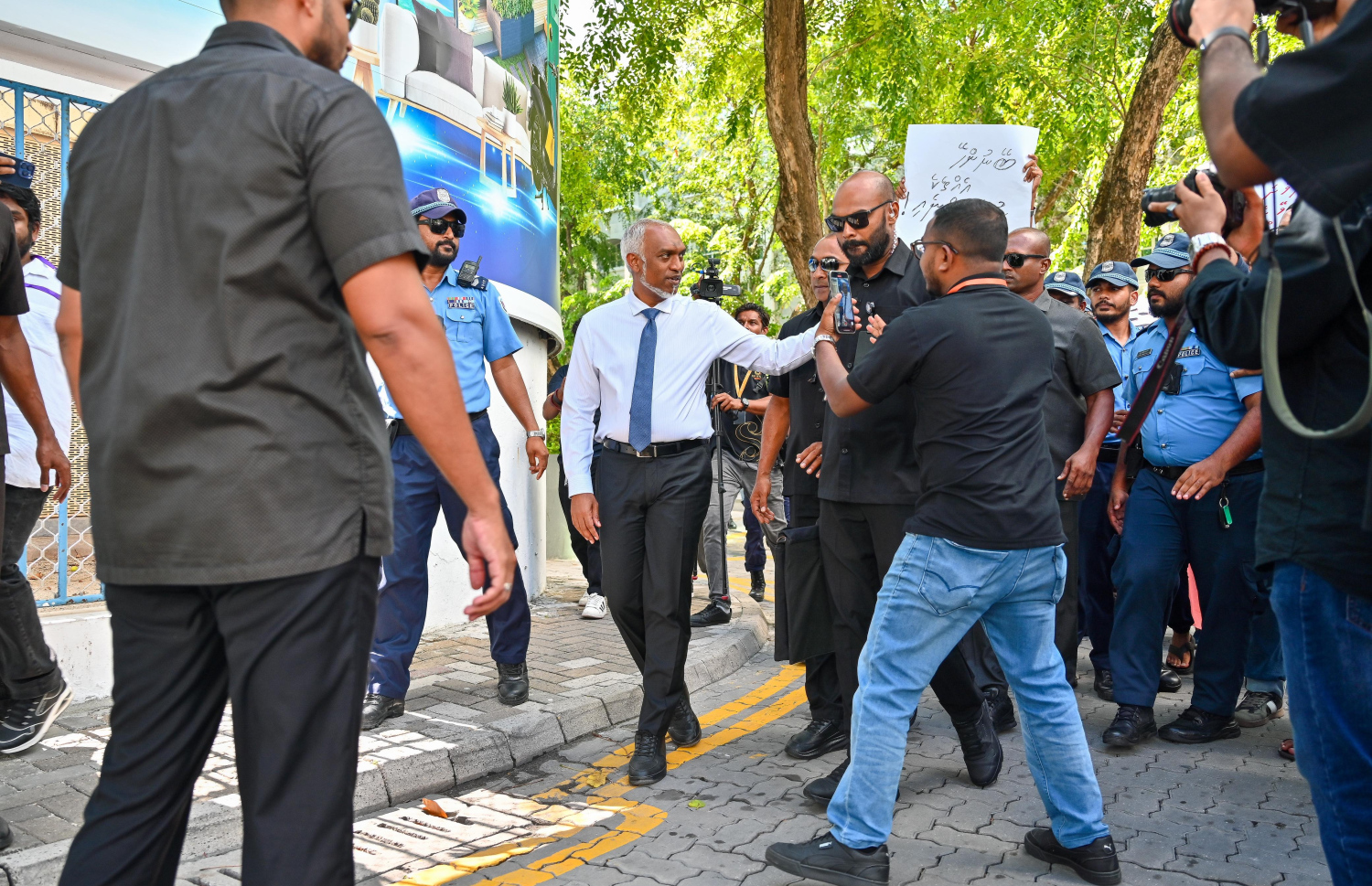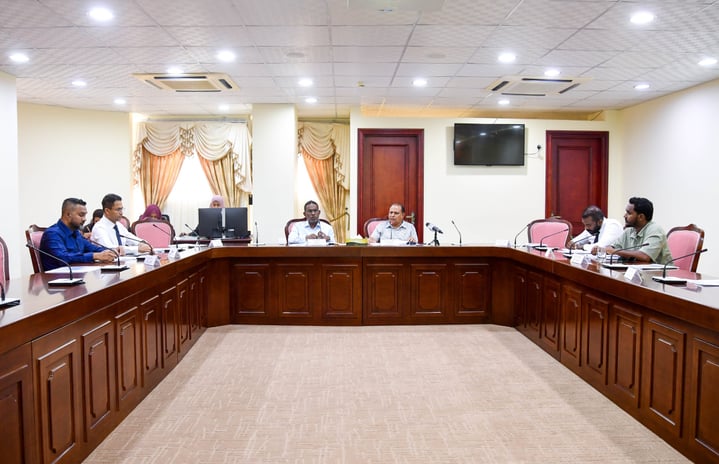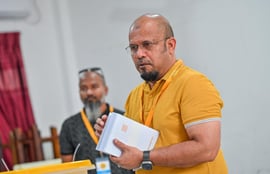A timeframe for public opinion to be submitted regarding the Media Regulation Bill which was submitted by Thulhaadhoo MP Abdul Hannan Aboobakuru has been opened.
As per a statement released by Parliament, any party who wishes to make their opinions known concerning the Media and Broadcasting Regulation Bill, which is currently being reviewed, has a deadline of September 6, 11:59 pm.
Parliament requests that those who want to express their opinions may do so by sending an email to the committee's (Committee on Independent Institutions) email address or by writing a letter directly to Parliament.
The bill was passed during an extraordinary sitting held yesterday, with 49 members of the ruling People’s National Congress (PNC) voting in favor and 12 against. The decision to pass the bill came as journalists protested near the Parliament since the beginning of the sitting, calling for the withdrawal of the bill.
Committee work has already begun on the bill passed yesterday.
Parliament’s Committee on Independent Institutions has decided to complete its review of the contentious Media Regulation Bill by September 15.
Journalists protested outside the President's Office and Mulee Aage as the bill was accepted, with some journalists having been detained but released soon after. Journalists continue to express their disapproval over the hasty process in passing the bill.

President Dr Mohamed Muizzu has met with journalists and the Maldives Journalists Association (MJA) to listen to their concerns regarding the bill.
Journalists said that after the meeting, President Muizzu had said that it is not his intention to control the media and that he will instruct the Parliament to amend the bill.
However, MJA has requested to withdraw the bill due to the amount of amendments that need to be made. MJA said that the President said he would consider the matter and seek the advice of the Attorney General.
The Attorney General held a press conference at 3:30 pm today regarding the matter.
Concerns about the bill
- The inclusion of the three members who will be appointed by the President, is an action that will not only hinder the "best practices" systems that are observed worldwide in journalism, but will also undermine the self regulatory system, with the government's influence making its way into the media.
- Parliament will have the power to remove members voted and appointed by the media. Due to this, the Parliament and government can influence journalists' chosen individual.
- Including upholding elected governments amongst the code of ethics for journalism. Due to an article such as this being included, it will be a difficult task for journalists to hold the government accountable and responsible.
- While a case is being reviewed by the commission, the power to temporarily seize licenses will be given to the council, along with the closure of news outlets for an undisclosed amount of time: The power to revoke the license will be given to the court.
- The commission will have the power to enter newsrooms through police intervention should they see a situation as a threat to national security. National security can be defined very loosely.
- As action can be taken against individual journalists, the disclosure of information to journalists and responsibility to the work will be hindered, keeping journalists in a state of constant fear. The current system does not allow action to be taken against individual journalists.
- It is not known who determines the "truth" or the "falsity" of a claim, while it also states journalists must apologize if they publish false information.




